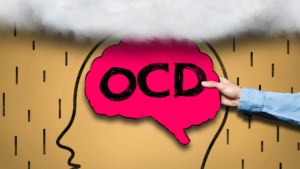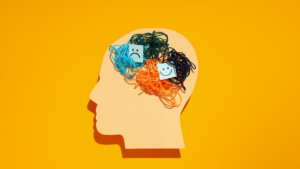
Schizophrenia is a mental illness that affects millions of people all around the world. While it’s true that most of us have heard of this condition, we might not be aware of all its complexities and nuances. In fact, schizophrenia is one of the most misunderstood illnesses out there – which is why we’ve put together this comprehensive guide to help you understand it better. From its symptoms and causes to treatments and coping strategies, we’ll cover everything you need to know about living with schizophrenia or supporting someone who does. So let’s dive in!
What is Schizophrenia?
Schizophrenia is a complex mental illness that can be difficult to understand. Symptoms of schizophrenia can vary greatly from person to person, and the condition can be both disabling and potentially life-threatening.
While the exact cause of schizophrenia is not known, it is thought to be a combination of genetic and environmental factors. Since schizophrenia frequently runs in families, the condition may have a hereditary tendency. However, it is not clear why some people with genetic predisposition develop schizophrenia while others do not. It is possible that exposure to certain environmental stressors (such as viral infections or psychoactive drugs) may trigger the onset of schizophrenia in people who are predisposed to the condition.
Signs and Symptoms of Schizophrenia
The signs and symptoms of schizophrenia can be divided into three categories: positive, negative, and cognitive.
Positive symptoms are those that most people don’t experience in their day-to-day lives. They include hallucinations, delusions, and thought disorders. Hallucinations are when a person sees, hears, or feels things that others don’t. For example, a person with schizophrenia might see things that aren’t there or hear voices that no one else can hear. Delusions are false beliefs that a person holds onto despite evidence to the contrary. A person with schizophrenia might believe they are being followed or watched, even though there is no evidence of this. Thought disorders are disruptions in the way a person thinks. A person with a thought disorder might have trouble organizing their thoughts or speaking in a clear and logical way.
Negative symptoms are those that involve a loss or decrease in function. They include problems with motivation, emotional expression, and social skills. A person with negative symptoms might not want to leave their home or interact with other people. They may have difficulty understanding emotions or showing emotions themselves. And they might speak very little because they lack motivation to communicate.
Cognitive symptoms are deficits in attention, memory, and executive functioning (which includes planning and problem-solving). A person with cognitive symptoms might have trouble focusing on tasks or remembering what they did yesterday. They might also have trouble understanding information and making decisions.
Diagnosing Schizophrenia
There is no one test to diagnose schizophrenia, but rather a combination of an individual’s symptoms, family history, and other factors. To be diagnosed with schizophrenia, an individual must have two or more of the following symptoms for at least six months:
- Delusions: False beliefs that are not based on reality. For example, believing that you are being followed or watched.
- Hallucinations: Seeing, hearing, or feeling things that are not actually there. For example, hearing voices.
- Disorganized thinking: A thought process that is jumbled or incoherent. This may manifest as difficulty speaking in a clear and concise manner.
- Extremely disorganized or abnormal motor behavior: This may include childlike silliness or agitation.
- Negative symptoms: A decrease in the ability to function normally. This may include a loss of interest in everyday activities, social withdrawal, and flattening of emotions.
Treatments for Schizophrenia
There is no one-size-fits-all treatment for schizophrenia, but there is a range of options that can help manage the condition. The most typical strategy combines medicine and psychotherapy.
Medication can be an effective way to manage the symptoms of schizophrenia. Antipsychotic medication can help reduce hallucinations, delusions, and thought disorders. There are a number of different antipsychotic medications available, so it may take some trial and error to find the one that works best for you.
Psychotherapy can also be helpful in managing schizophrenia. Cognitive behavioral therapy (CBT) can help you to understand your thoughts and behaviors, and how to change them. Family therapy can also be beneficial, as it can help to support and educate loved ones about the condition.
Schizophrenia is a complex mental illness that can be difficult to understand. We hope this comprehensive guide has given you an insight into the symptoms, causes, and treatments of this disorder so that you can better support those affected by it. While there is still much research to be done on schizophrenia, we should all strive for greater awareness and understanding of the condition so that those with schizophrenia are not stigmatized or judged but rather supported in their journey toward recovery.



